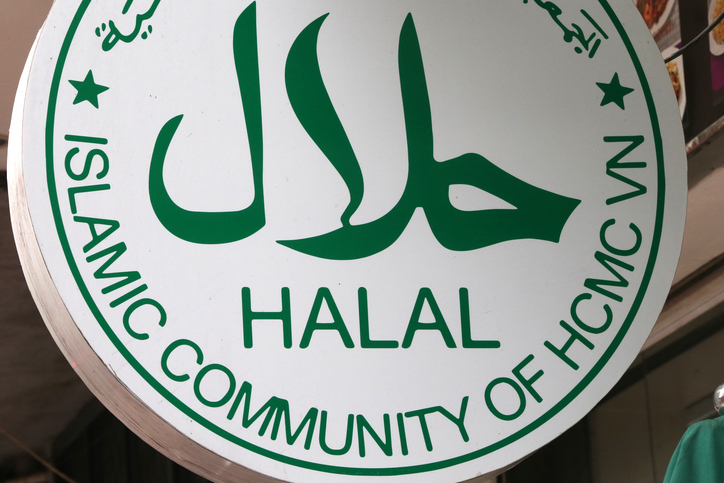Halal slaughter was in the political spotlight again, with MPs raising concerns the debate disproportionately targets Muslims and is fueled by prejudice and Islamophobia, not animal welfare.
The government rejected the call for a ban, stating it respected the rights of Jews and Muslims to consume meat according to their beliefs.
The debate was prompted by a petition signed by over 100,000 people calling for a ban on non-stun slaughter, calling it “barbaric” and incompatible with “our culture and modern-day values.”
A separate motion to ban “halal slaughter” was proposed by Rupert Lowe, a former Reform UK MP currently running as an independent following a dispute with leader Nigel Farage.
Labour MP Yasmin Qureshi highlighted that non-stun slaughter accounts for just 2.9% of all animals killed in the UK, with the vast majority of halal meat (88%) already pre-stunned. She said the disproportionate focus on halal meat—rather than kosher slaughter or wider welfare issues—suggested that the issue was being politicised.
“We have heard religious slaughter described as “barbaric”. MPs such as myself have received emails referring to “Muslim meat” and “dirty men with beards”. That is not the language of animal welfare; it is prejudice—plain and simple,” she told MPs.
“Dog whistle for xenophobia”
Independent MP Iqbal Mohamed said the framing of the debate was “concerning.”
“Yes, I care about animal welfare, that’s the supposed topic here, but I’m equally disturbed by the undertone. A title dressed as a welfare concern but sounding like a dog whistle for xenophobia, targeting religious practices, particularly Jewish and Muslim communities,” he said.
“The claim in the petition that non-stun slaughter does not reflect our culture or modern values is not just inaccurate; it is worryingly exclusionary and divisive,” he added.
Mohamed said both halal and kosher slaughter prioritise animal welfare: animals must be healthy, cannot see the slaughter knife, and must be isolated from other animals being killed. The method uses a sharp knife for swift cuts to key arteries and windpipe (not spinal cord), causing rapid unconsciousness with minimal pain. He added that evidence shows that “halal methods can be as humane as stun slaughter, if not more so.”
He called for “consistency” in how animal suffering is addressed. “This is not a simple ‘stun good, non-stun bad’ issue,” he said, noting that widespread practices like gas-stunning pigs or failed electrical stunning in poultry cause significant distress but receive far less scrutiny.
Disproportionate focus on halal, not on welfare
Multiple speakers urged Parliament to consider the broader picture of animal welfare, including high rates of mistreatment within the conventional meat industry.
“If we are serious about improving animal welfare, we should focus on how the 97% of animals are treated throughout their lives, not just how the 3% meet their end,” said Labour MP David Pinto-Duschinsky.
Independent Shockat Adam MP said: “Why does this issue keep returning to the political spotlight? Frankly, we must ask if it is being used as a dog whistle—I exclude the people who may have brought this petition today—by stirring suspicion and division under the guise of concerns for animals. When MPs table 12 questions about halal, only one about kosher and absolutely none about CO2 gassing of pigs or factory farming, that does send a message—either consciously or not—that this may be about faith, not welfare.”
He added: “The EFSA found that 4% of cattle are not rendered unconscious after the first attempt of that bolt of electricity. The non-penetrative method, where the bolt strikes but does not penetrate the skull, has a failure rate of up to 30% of animals, causing skull fractures and distress. Electrical stunning, often used in poultry, involves passing a high voltage current through the brain, but if done incorrectly, the animal remains fully conscious.”
Concerns over far-right co-option
Several MPs expressed alarm that non-stun slaughter debates are increasingly being used as a platform for political agendas hostile to minority groups.
“The practice seems to be: pick a minority practice, label it backward or dangerous, and claim the moral high ground under the banner of animal welfare. But this is not about welfare; it is about control, scapegoating and singling out faith communities for scrutiny that others are not subjected to,” said Labour’s Naz Shah.
Meanwhile, Adnan Hussain MP made comparisons with Germany in the 1930s: “We once saw Nazi Germany put into law policies similar to those we are discussing. The justification then, too, was animal welfare, but in context it was a thin pretext for antisemitism. That ban was part of a broader programme to marginalise and dehumanise Jewish people by stripping away their rights and religious freedoms.”
Ayoub Khan MP said the petition has “been welcomed in right-wing echo chambers” and made a point to emphasise the economic blow, especially to British farmers.
“We are looking at a sector which brings two billion pounds of trade within the UK economy every year,” he said. “The demand for non-stun halal and kosher meat is not going to cease, because for many it is a matter of profound unwavering religious conviction.”
Labour’s Afzal Khan said that even the British Veterinary Association has suggested a permit system for non-stun allowances, not a blanket ban. He pointed to a rise in anti-Muslim hate crimes and warned that debates such as this risk fuelling community division, adding that it’s the “underlying racism and Islamophobia that too often drives these debates.”
Rupert Lowe MP, argued for a ban and framed non-stun slaughter as inhumane. “We are all eating halal meat without knowing it. I find that morally repugnant. We should ban non-stun slaughter, we should ban halal slaughter and we should ban kosher slaughter,” he said.


















